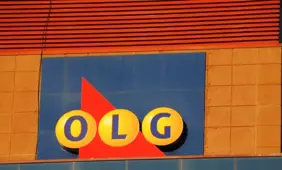Dutch iGaming Market Faces Further Contraction as Two Operators Exit
The Dutch online gambling market is undergoing significant changes with the departure of two prominent operators, LiveScore Malta and Tombola International. These exits underscore the mounting challenges operators face in the Netherlands due to rising taxes and more rigorous regulatory demands.

The Kansspelautoriteit (KSA), the regulatory authority overseeing gambling in the Netherlands, approved requests from both companies to relinquish their licenses under the KOA Act. On December 23, the KSA officially annulled the licenses for LiveScore Bet and Tombola.nl.
Related: Netherlands to Raise Gambling Tax in Two Phases by 2026This move follows prior announcements from both operators signaling their plans to exit the market. In November, LiveScore Bet notified customers and partners of its intention to wind down operations in the Netherlands by the close of 2024. Tombola, a division of Flutter Entertainment Plc, had already begun scaling back its activities in the region.
These exits mark the withdrawal of two of the first operators to enter the Dutch regulated iGaming market.
A primary factor in their decisions is the increasing tax burden within the Dutch iGaming sector. As part of the Netherlands' 2025 budget, gambling tax rates are set to rise in two stages, reaching 34.2% in 2025 and climbing further to 37.8% in 2026.
The LiveScore Group has highlighted these tax hikes as a key reason for its withdrawal, citing that the higher rates make the market financially unviable. This reflects the growing economic pressures faced by operators in the regulated Dutch gambling industry.
More Business News
 Business
Business
Ontario Lottery and Gaming Introduces Online Slot Developed for the Seeing-Impaired
Jun 06, 2025 Business
Business
Betsson Rejects Dutch iGaming Market Return amid Regulatory, Government Challenges
Jun 05, 2025Stricter Regulations Add to the Strain
In addition to tax increases, the regulatory environment under the KOA Act has presented new hurdles for operators. Initially implemented on October 1, 2021, the act provided a structured framework for legal online gambling in the Netherlands.
Over time, however, amendments to the act have introduced stricter compliance requirements. These include more restrictive advertising rules, mandatory deposit caps, individual identification processes, and monthly loss limits of €350 for general players and €150 for younger players under the age of 25. Such measures have raised the cost and operational complexity for licensed gambling businesses.
LiveScore and Tombola were among the first group of 10 companies granted licenses under the KOA Act when the regulated market launched in 2021. Their early participation signaled confidence in the market's potential at the time.
However, as regulations have tightened over the past three years, the combination of higher compliance costs and increasing taxes has led many operators to reevaluate their presence in the Dutch market. Measures intended to protect consumers have inadvertently impacted profitability, deterring firms from continuing operations.
As the Dutch government moves forward with further revisions to the KOA Act, the ecosystem's future remains uncertain. Teun Struycken, the recently appointed Minister for Legal Protections, will be responsible for overseeing upcoming regulatory updates. His duties include examining proposals to balance regulatory requirements with the need to maintain a competitive market environment.
Stakeholders within the industry have raised concerns that excessive tax rates and stringent compliance rules could stifle market growth and redirect customers to unregulated gambling platforms, potentially undermining the goals of the regulatory framework. The recent exits seem to be a fair assessment of that forecast.
RELATED TOPICS: Business
Most Read
Must Read
 Interviews
Interviews
Sweepstakes Casinos: Thriving in an Ever-Changing Industry – Interview with Attorney Stephen C. Piepgrass
Feb 17, 2025 Interviews
Interviews





Review this New Post
Leave a Comment
User Comments
Comments for Dutch iGaming Market Faces Further Contraction as Two Operators Exit